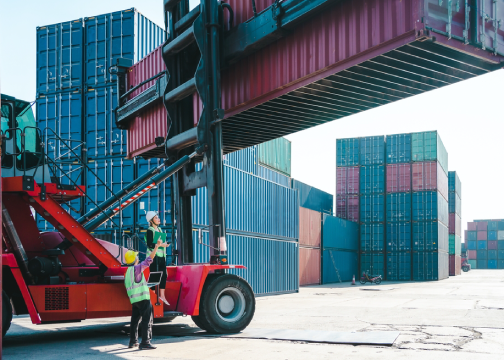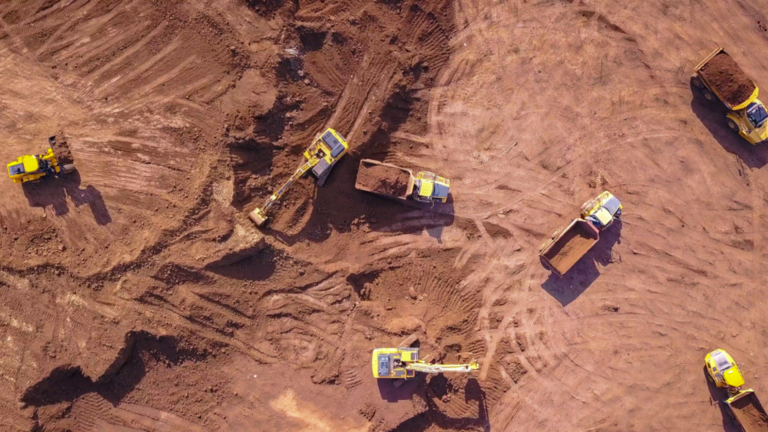How to cut construction costs during the winter slump
The average fleet management plan is designed to overcome challenges companies failed to anticipate in the past. The idea is simple: “These problems tripped us up before, let’s make sure they don’t trip us up again.”
But backward-looking business plans have a fatal flaw: Companies don’t need to solve yesterday’s problems, they need to solve tomorrow’s. When businesses fail to anticipate changes in the marketplace, the economy, and technology, they’ll be forced to throw out their plans and redraw their plans from scratch.
2020’s problems were so overwhelming that it’s difficult for many fleet professionals to plan too far into the future. Fleets are still recovering from the strain that coronavirus put on fulfillment operations. That’s why FleetUp’s industry experts have talked to customers, dug into the data, and uncovered five of the challenges fleet professionals should plan for in 2021:
1. Decrease equipment downtime
Equipment upkeep is expensive. Construction Equipment Magazine estimates that a piece of equipment costs owners an average of at least $25 every hour it’s not used. That’s in the best-case scenario, when it’s simply sitting idle in storage. In a worst-case scenario, when the piece of equipment is needed but broken, it will cost owners an average of at least $100 per hour.
When business slumps, downtime costs skyrocket. Equipment managers can fight this problem with equipment management technology. FleetUp offers a powerful utilization tool that instantly shows where every piece of equipment is. Companies use it to quickly find the equipment they need and to identify idle equipment. By making inventory management as simple as the click of a button, FleetUp makes it easy to locate and eliminate revenue-reducing assets that drag down profits.
FleetUp’s e-maintenance features solve the problem of equipment breakdown. Users centralize all of their maintenance records and schedules on one online platform, accessible to any approved team member. Online e-maintenance reduces confusion, keeps colleagues on the same page, and notifies mechanics when parts are due for replacement.
Even more powerful is FleetUp’s automated engine monitoring. When engines are in danger of malfunctioning, automated text or email alerts are sent to managers and/or mechanics. Businesses will know about potential problems before they happen, so they can keep equipment running without interruption.
2. Fight the rise in equipment theft
One way the coronavirus has impacted the construction industry is an unfortunate uptick in equipment theft. Every lost piece of equipment means thousands lost in profits. Stop thieves with equipment tracking.
FleetUp’s geofence alerts allow users to create digital borders around any area, including worksites, warehouses, lots, and more. When equipment is taken out of those areas, automated text or email alerts are sent to the appropriate parties. The moment a piece of equipment is in danger, owners will know.
The tracking devices FleetUp uses are concealed and continue working no matter what. Thieves won’t know that they’re being watched. When police are informed, stolen equipment can be located and recovered.
In addition to these features, FleetUp offers an engine disabling control. When users remotely switch this on, engines will be locked as soon as they’re turned off. They can’t be turned on again until the user gives permission via the FleetUp platform.
3. Reduce fuel use
It’s a truism that fuel eats up profits. But even though everyone knows that it’s one of the highest costs of every construction project, few people realize there’s a technology that reduces fuel use by an average of 20%.
That technology is FleetUp’s patented Fuel Waste Analysis. It’s an easy-to-use tool that shows businesses exactly how they can reduce the amount of fuel their equipment uses. It identifies which pieces of equipment are over-using fuel and pinpoints the exact causes of that overuse. Mechanics use the tool to spot and fix mechanical causes of fuel loss. Managers use the tool to identify and retrain operators who have wasteful operating habits. Companies love the tool because it makes every project more profitable.
Optimize profits with FleetUp
Construction Dive reports that the ongoing pandemic means “a bleak outlook for construction’s prospects.” That’s why profit maximization will be essential in early 2021 and beyond. Learn how equipment management technology will increase your fleet’s revenue. Contact FleetUp today.








